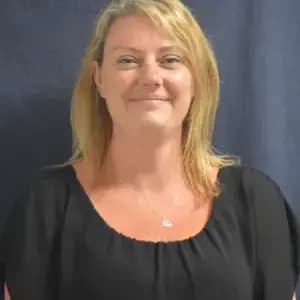A Spires tutor in Southwark blends subject mastery, examiner insight, proven teaching experience, tutoring expertise and professional qualifications to raise GCSE and A-Level grades fast. Our data show 93 % of students improve by almost two grade boundaries after a median of 33 hours of tuition*. With online lessons recorded for unlimited replay, you can revisit explanations whenever revision pressure mounts. Register free, post your learning goals — including GCSE and A-Level, university-level and primary school level needs — and receive bids within minutes to find a tutor.
How do tutors in Southwark help with GCSE and A-Level exam preparation?
Tutors in Southwark begin with a diagnostic quiz to spot areas of weakness in mathematics, science, English language or history. They then create a 1-to-1 revision timetable that balances past-paper drilling, timed essay plans and knowledge-boosting flashcards. Regular progress reports keep parents and students informed, while targeted feedback refines exam technique so that marks climb steadily. This exam preparation and targeted academic support also covers GCSE tutoring, gcse and a-level topics and wider tutoring needs.
What makes online tuition with tutors in Southwark effective for mathematics and science revision?
Interactive BitPaper whiteboards allow your online tutor to demonstrate algebra steps, chemical equations and physics graphs in real time. HD video, screen-share and instant file uploads mean that complex problems are deconstructed visually, matching the way most pupils learn STEM content. Recordings automatically save to your dashboard, so every worked solution becomes a personalised video textbook. These tools support tutoring online and expert online tutoring, making online tuition and online sessions highly effective for maths tutors, physics tutors and biology tuition.
Can private tutors in Southwark support students aiming for university admissions tests?
Private tutors in Southwark run timed drills for UCAT, LNAT, TMUA and Oxbridge admissions papers (University of Oxford and University of Cambridge), supporting broader university admissions preparation. Many hold Master of Science (MSc) or Doctor of Philosophy degrees and have sat on interview panels, so they can sharpen critical-thinking strategies as well as subject knowledge. Posting your admission-test requirements early secures the specialist before application season fills diaries.
Do tutors in Southwark personalise learning plans to fit my child’s learning style?
Yes. Each tutor in Southwark adapts pace, resources, questioning techniques, overall teaching style and questioning techniques to auditory, visual or kinaesthetic preferences. Lessons might include colour-coded mind-maps, Socratic questioning or GCSE maths manipulatives, ensuring that every child—whether in primary and secondary school or college—feels challenged yet supported. Tutors tailor each lesson so the lesson is tailored to individual learning needs and students of all ages.
* Based on Spires Client Feedback Survey 2025















